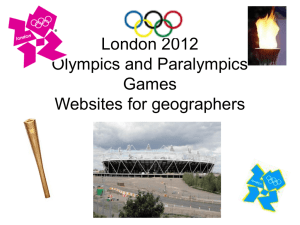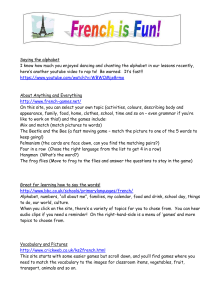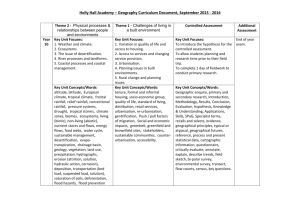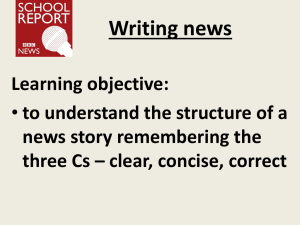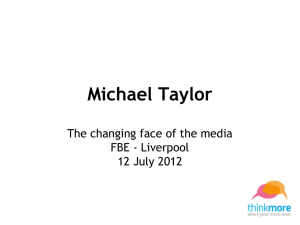BBC Media Action - Use of existing broadcast infrastructure
advertisement
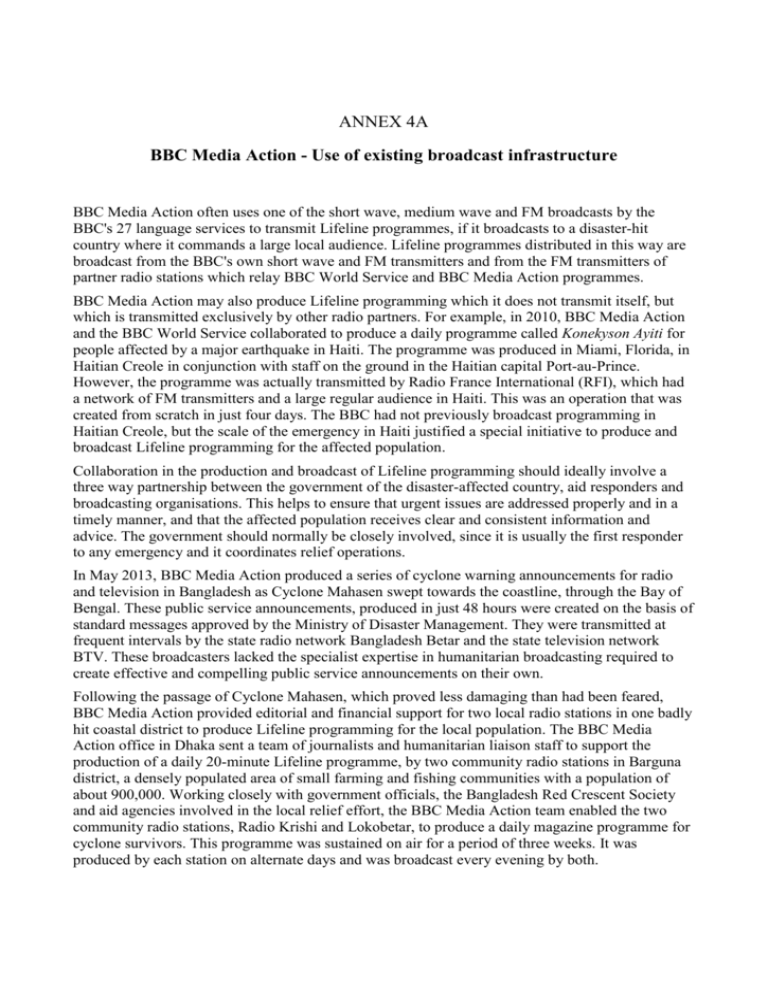
ANNEX 4A BBC Media Action - Use of existing broadcast infrastructure BBC Media Action often uses one of the short wave, medium wave and FM broadcasts by the BBC's 27 language services to transmit Lifeline programmes, if it broadcasts to a disaster-hit country where it commands a large local audience. Lifeline programmes distributed in this way are broadcast from the BBC's own short wave and FM transmitters and from the FM transmitters of partner radio stations which relay BBC World Service and BBC Media Action programmes. BBC Media Action may also produce Lifeline programming which it does not transmit itself, but which is transmitted exclusively by other radio partners. For example, in 2010, BBC Media Action and the BBC World Service collaborated to produce a daily programme called Konekyson Ayiti for people affected by a major earthquake in Haiti. The programme was produced in Miami, Florida, in Haitian Creole in conjunction with staff on the ground in the Haitian capital Port-au-Prince. However, the programme was actually transmitted by Radio France International (RFI), which had a network of FM transmitters and a large regular audience in Haiti. This was an operation that was created from scratch in just four days. The BBC had not previously broadcast programming in Haitian Creole, but the scale of the emergency in Haiti justified a special initiative to produce and broadcast Lifeline programming for the affected population. Collaboration in the production and broadcast of Lifeline programming should ideally involve a three way partnership between the government of the disaster-affected country, aid responders and broadcasting organisations. This helps to ensure that urgent issues are addressed properly and in a timely manner, and that the affected population receives clear and consistent information and advice. The government should normally be closely involved, since it is usually the first responder to any emergency and it coordinates relief operations. In May 2013, BBC Media Action produced a series of cyclone warning announcements for radio and television in Bangladesh as Cyclone Mahasen swept towards the coastline, through the Bay of Bengal. These public service announcements, produced in just 48 hours were created on the basis of standard messages approved by the Ministry of Disaster Management. They were transmitted at frequent intervals by the state radio network Bangladesh Betar and the state television network BTV. These broadcasters lacked the specialist expertise in humanitarian broadcasting required to create effective and compelling public service announcements on their own. Following the passage of Cyclone Mahasen, which proved less damaging than had been feared, BBC Media Action provided editorial and financial support for two local radio stations in one badly hit coastal district to produce Lifeline programming for the local population. The BBC Media Action office in Dhaka sent a team of journalists and humanitarian liaison staff to support the production of a daily 20-minute Lifeline programme, by two community radio stations in Barguna district, a densely populated area of small farming and fishing communities with a population of about 900,000. Working closely with government officials, the Bangladesh Red Crescent Society and aid agencies involved in the local relief effort, the BBC Media Action team enabled the two community radio stations, Radio Krishi and Lokobetar, to produce a daily magazine programme for cyclone survivors. This programme was sustained on air for a period of three weeks. It was produced by each station on alternate days and was broadcast every evening by both. BBC Media Action support for local broadcasters to produce their own Lifeline programmes is likely to become increasingly common, since information of specifically local relevance is highly valued by people affected by humanitarian emergencies. In June and July 2013, BBC Media Action Lifeline programming specialists in Nepal, trained local radio stations and aid responders in Kailali district in the northwest of the country, to produce early warning and disaster response programming to address frequent floods and landslides in the area. The training sessions brought together government officials, the police, local staff of the international NGO Mercy Corps, community leaders and journalists from three local FM stations in Kailali District. The training has enabled these partners to start transmitting Lifeline programmes spontaneously during future flood emergencies, without waiting for external assistance to do so.


